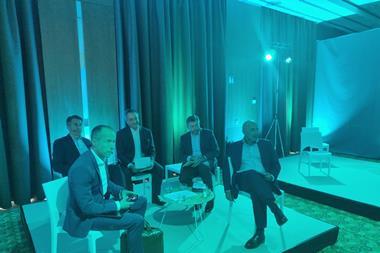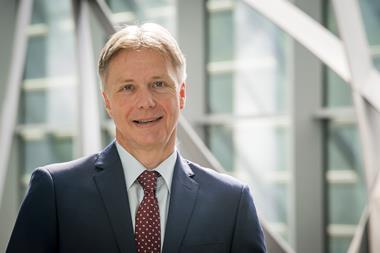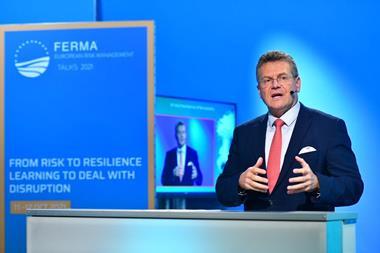The pandemic has made the communication lines between risk managers and their senior management very short, says Philippe Cotelle
A business continuity plan is no longer enough - you have to put more “meat on the bone” when it comes to contingency planning - and have a direct line of communication to senior management.
This is according to Philippe Cotelle, head of Cyber Insurance, head of Insurance Risk Management at Airbus Defence & Space, who was speaking on a live discussion panel at FERMA Talks.
“The pandemic pushed the digital agenda and made the communication lines of very short,” he said. “I am coordinator of the group crisis team and the senior management reach out to me directly, and that’s the way it should work.”
The discussion focused on the need for greater collaboration in order to achieve more resilient organisations.
Walk the talk
It comes at a time when stakeholders are demanding to see what steps organisations are taking to buffer themselves against future shocks and disruption.
“Resilience is not something you claim - you need to prove it delivers,” explained Stephane Lenco, chief information security officer, Thales Group. “Why are people asking? It’s because we need to consistently deliver whatever we’re making.”
Whether you are assembling component in a factory floor and your people are locked up at home due to a pandemic, or your staff are in the workplace but your systems are down due to a ransomware attack, it comes down to your ability to bounce back, he thought. “It’s about, how does it affect your capability to deliver the end product?”
Shareholders have also been asking more questions about resilience since the start of the pandemic, said Sandra Gobert, executive director, Belgian Institute of Directors.
“The pandemic has been a wake-up call at all levels of the organisation to install this holistic approach and move from pure risk approach to a more strategic approach.”
While seeking to manage current and future risks, it is also important to spot the opportunities that are also out there, she added.
“If you look at the energy crisis and ESG there are a lot of opportunities. The challenges that come with transition are tremendous, including potential for stranded assets, but we need to have the courage to develop new visions and COVID has helped us to look at things differently.”




















No comments yet